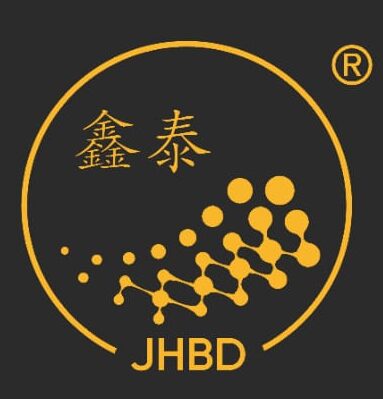The Secrets of Peptides- Why Peptides Are Important To The Human Body?
With the rapid development of science and technology in recent years, people are pursuing a higher and more comprehensive level of health.
Peptides products are gradually becoming better known worldwide as they offer an unprecedented supplement to the human body’s all-around dietary needs.
Many countries have carried out research and production of biological peptides.
21st century is indeed the century of peptides!
What are peptides?
Many people can not tell the differences between proteins and peptides.
Actually both proteins and peptides are made up of amino acids, but peptides contain far fewer amino acids than proteins.
Peptides are structural and functional fragments that constitute proteins and are also an ordered composition of amino acids. They are compounds composed of two or more amino acid molecules connected through peptide bonds.
Our JHBD products are called Oligopeptides which have 2-10 amino acids.
Peptides are easier for the human body to absorb than proteins because they are smaller and more broken down than proteins. They can more easily penetrate the skin and intestines, which helps them to enter the bloodstream more quickly.
The protein consumed by the human body is absorbed in the form of peptides. Peptides are fundamental among the seven nutrients: carbohydrates, proteins, fats, vitamins, minerals, fibre, and water. They are active substances with various physiological functions and are messengers that transmit information between cells and organs.

To put it simple, protein is like a cattle, It has to be divided into brisket, rib, shank etc, and then stir, fry or stew before it becomes a dish.
amino acids are like the sliced beef, it still needs to be cooked before it becomes a dish.
While peptides are just like a deliciously seasoned dish which is put in front of you, you can eat straight away.
The absorption mechanism and characteristics of peptides:
- No need to digest; can absorb directly.
The peptides in the human body can be obtained by enzymatic hydrolysis of proteins and the body’s own secretion. Small molecule active peptides are not hydrolyzed by the body’s various enzymes and acids after being consumed by the body, it enters the small intestine directly like the peptides secreted by the body itself, and is absorbed by the small intestine. It then enters the human circulatory system to exert its biological function.
- Fast and complete absorption.
Small molecule active peptides enter the human body through the oral route. The absorption rate is 70% faster than amino acids. It quickly passes through the human mouth and stomach, then absorbed in the small intestine. It will then enter the blood circulatory system, organs and tissues to get absorbed and utilized, quickly exerting their physiological and biological functions. The peptides are absorbed at the same rate as an infusion, which is unlike any other nutritional products.
- Actively and preferentially absorbed by the body.
Peptides have the characteristic of actively allowing the body to absorb or even forcing it to absorb. This is of great importance for those with poor digestion, nutritional deficiencies and weaknesses.
- No energy is expended on the body
It does not increase the burden on the digestive tract, especially the gastrointestinal tract.
In conclusion, the absorption mechanism of peptides is different and more superior to other nutrients, its unique characteristic makes it crucial to human health.
Human body can produce peptides, but the amount decreases sharply with age.
1: Sufficient secretion period ( before the age of 25)
During this period, the secretion is balanced, the immune function is strong, major illnesses do not generally occur at this age.
2: Insufficient secretion period (between 30-50 years old)
During this period, usually the secretion of active peptides is insufficient or unbalanced, many people suffer from sub-health and mild disease symptoms
3: Secretory deficiency period (over 50 years old)
If the active peptide is severely insufficient and imbalanced during this period, prominent symptoms of ageing may appear, or various related diseases may occur.





